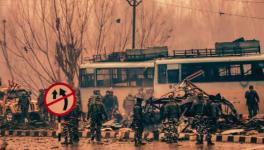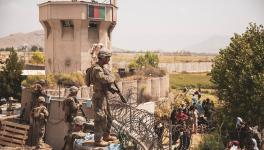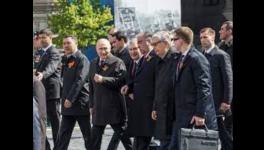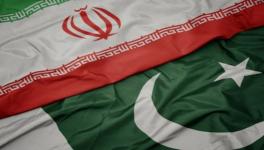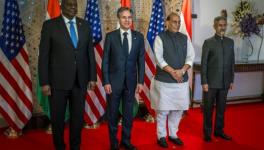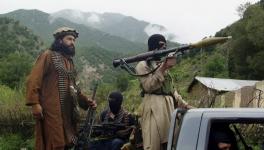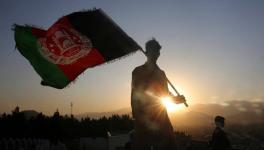Taliban Advance Ahead After Capturing 2 Major Afghan Cities – Kandahar and Herat
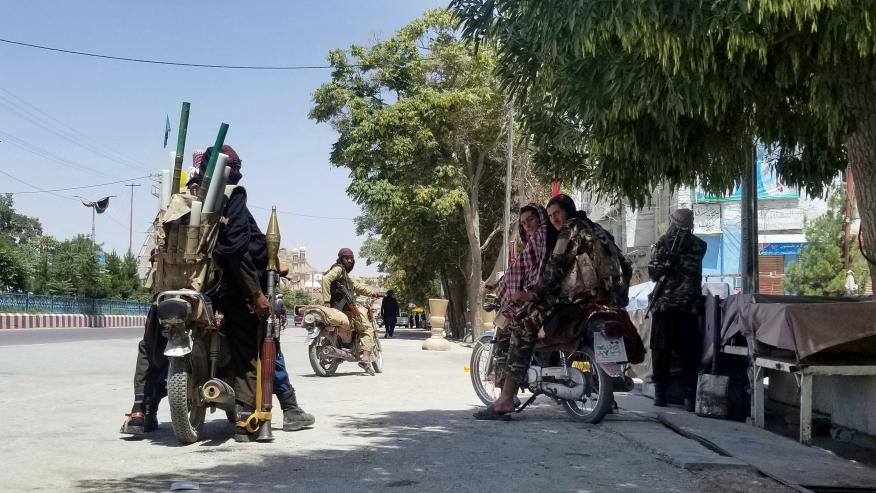
Image Courtesy: AP
Kabul: Afghanistan's rapidly-advancing Taliban insurgents entered a western provincial capital, an official said Friday, hours after they captured the country's second and third largest cities in a lightning advance just weeks before America is set to end its longest war.
The seizure of Kandahar and Herat marks the biggest prizes yet for the Taliban, who have taken 12 of Afghanistan's 34 provincial capitals as part of a weeklong blitz.
While Kabul itself isn't directly under threat yet, the losses and the battles elsewhere further tighten the grip of a resurgent Taliban, who are estimated to now hold over two-thirds of the country and continue to press their offensive.
With security rapidly deteriorating, the United States planned to send in 3,000 troops to help evacuate some personnel from the US Embassy in Kabul. Separately, Britain said about 600 troops would be deployed on a short-term basis to support British nationals leaving the country, and Canada is sending special forces to help evacuate its embassy.
Thousands of Afghans have fled their homes amid fears the Taliban will again impose a brutal, repressive government, all but eliminating women's rights and conducting public executions. Peace talks in Qatar remain stalled, though diplomats are still meeting.
Fazel Haq Ehsan, chief of the provincial council in the western Ghor province, said Friday that the Taliban had entered Feroz Koh, the provincial capital, and that there was fighting inside the city. He was on the outskirts of town and was unable to immediately provide more details.
The Taliban, meanwhile, claimed to have captured Qala-e Naw, capital of the western Badghis province. There was no official confirmation.
The latest US military intelligence assessment suggests Kabul could come under insurgent pressure within 30 days and that, if current trends hold, the Taliban could gain full control of the country within a few months. The Afghan government may be forced to pull back to defend the capital and just a few other cities in the coming days if the Taliban maintain momentum.
The onslaught represents a stunning collapse of Afghan forces after the United States spent nearly two decades and $ 830 billion trying to establish a functioning state after toppling the Taliban months after the September 11 attacks.
The advancing Taliban ride on American-made Humvees and carry M-16s pilfered from Afghan forces.
Afghan security forces and the government have not responded to repeated questions from journalists over the days of fighting, instead issuing video communiques that downplay the Taliban advance.
In Herat, Taliban fighters rushed past the Great Mosque in the historic city — a structure that dates to 500 BC and was once a spoil of Alexander the Great — and seized government buildings. Witnesses described hearing sporadic gunfire at one government building while the rest of the city fell silent under the insurgents' control.
Herat had been under militant attack for two weeks, with one wave blunted by the arrival of warlord Ismail Khan and his forces. But on Thursday afternoon, Taliban fighters broke through the city's defensive lines and later said they were in control.
Afghan lawmaker Semin Barekzai also acknowledged the city's fall, saying that some officials there had escaped. Witnesses described seeing Taliban fighters who had been detained at Herat's prison now freely moving on the streets.
It wasn't immediately clear what happened to Khan, who earlier had been described as under attack with his forces at a government building.
In Kandahar, the birthplace of the Taliban, insurgents seized the governor's office and other buildings, witnesses said. The governor and other officials fled the onslaught, catching a flight to Kabul, the witnesses added. They declined to be named publicly as the defeat has yet to be acknowledged by the government.
The Taliban had earlier attacked a prison in Kandahar and freed inmates inside, officials said.
Earlier Thursday, the militants raised their white flags imprinted with an Islamic proclamation of faith over the city of Ghazni, which sits on a crucial north-south highway just 130 kilometers (80 miles) southwest of Kabul.
Ghazni provincial council member Amanullah Kamrani alleged that the provincial governor and police chief made a deal with the Taliban to flee after surrendering. Taliban video and photos purported to show the governor's convoy freely passing by insurgents as part of the deal.
Afghan Interior Ministry spokesman Mirwais Stanekzai later said the governor and his deputies had been arrested over that alleged deal. The officials could not be immediately reached for comment.
Stanekzai also acknowledged in a video message that parts of Ghazni had fallen, though he insisted government security forces “do exist” in the city.
Already, the Taliban's weeklong blitz has seen the militants seize nine other provincial capitals around the country.
In southern Afghanistan, the Taliban's heartland, heavy fighting continued in Lashkar Gah, where surrounded government forces hoped to hold onto the capital of Helmand province.
Get the latest reports & analysis with people's perspective on Protests, movements & deep analytical videos, discussions of the current affairs in your Telegram app. Subscribe to NewsClick's Telegram channel & get Real-Time updates on stories, as they get published on our website.










